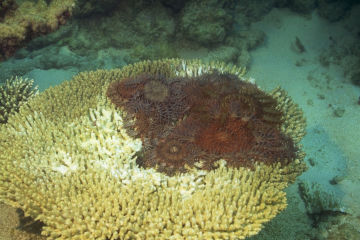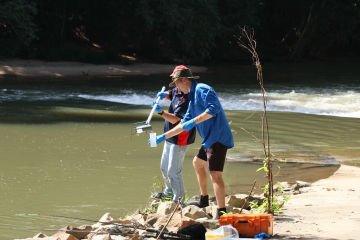Protecting corals
Pioneering innovative scientific solutions to tackle key Reef threats.
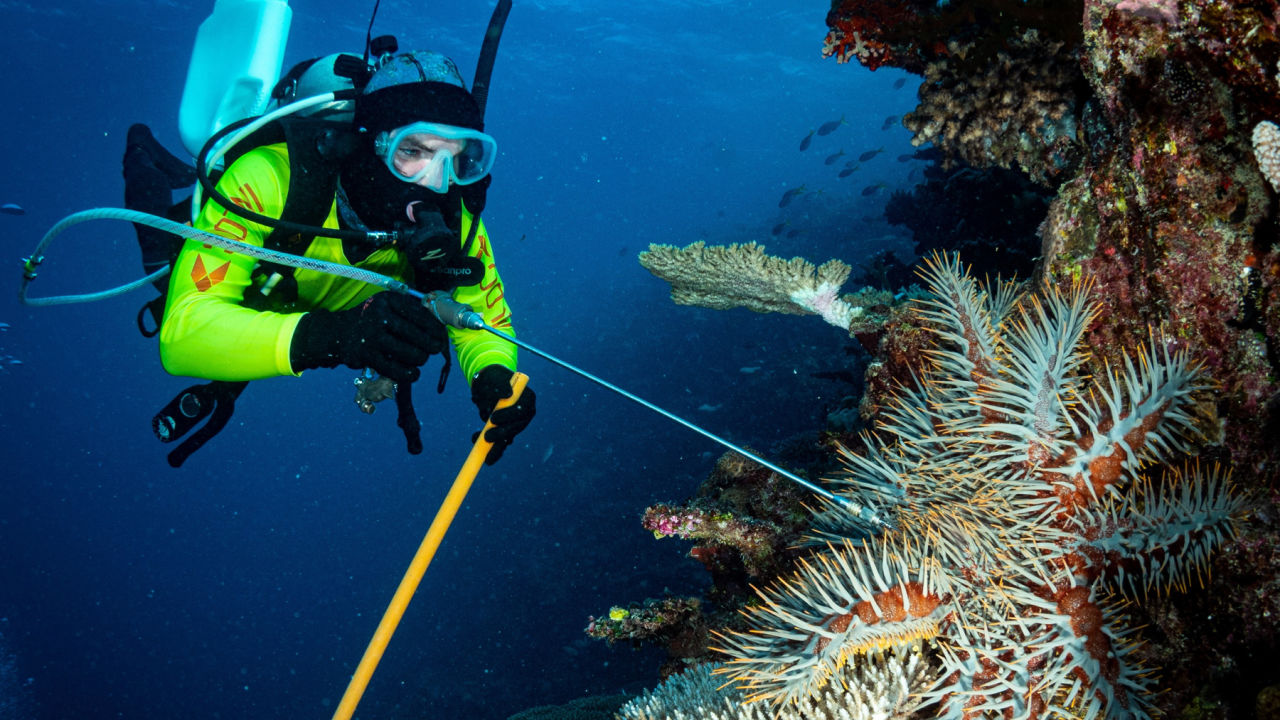
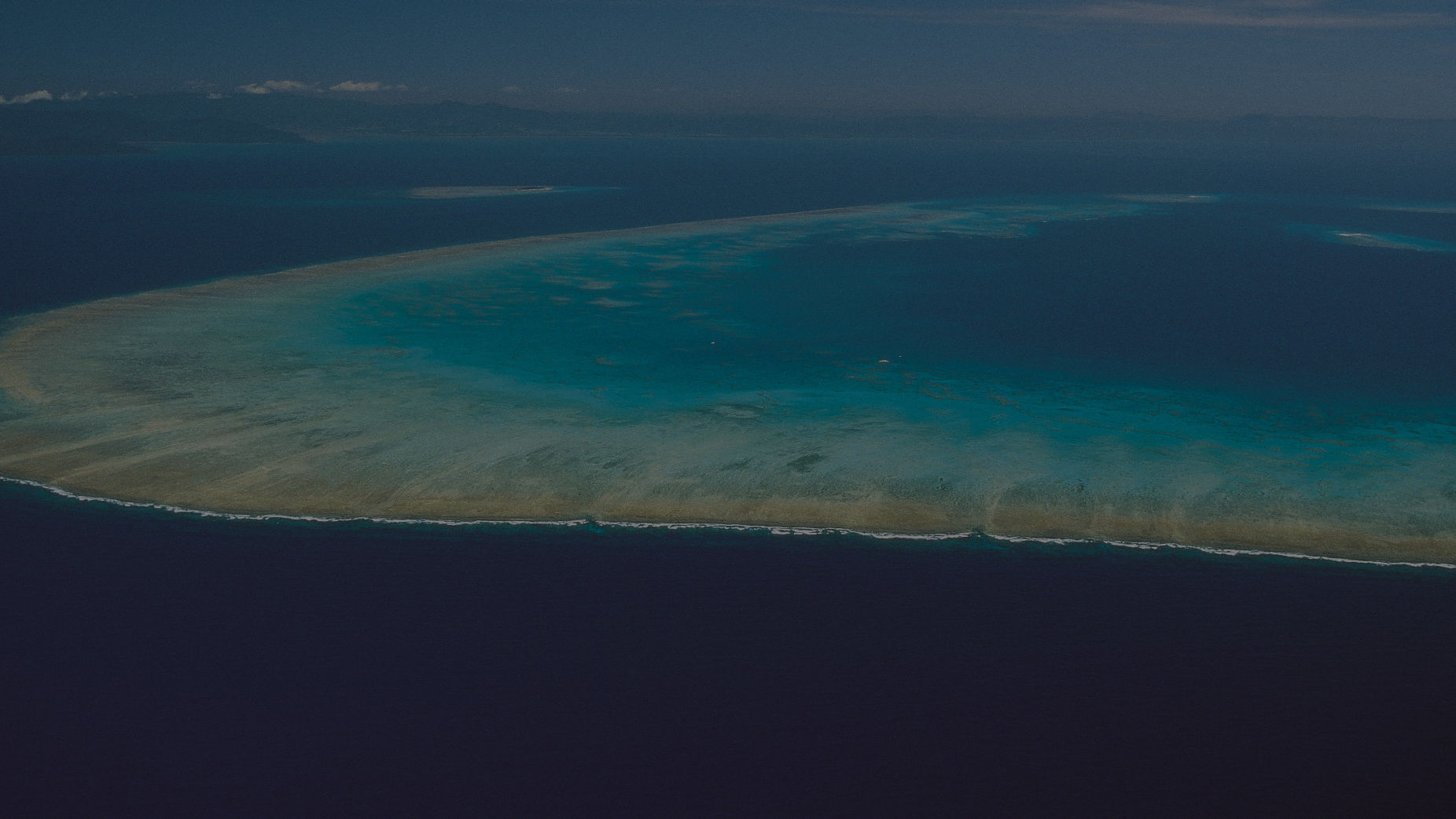
#The problem
Predators, coastal development, pollution, ocean acidification and warming temperatures have a direct impact on corals.
Coral reefs globally are facing a range of threats. Climate change is causing coral bleaching and ocean acidification, coral-eating predators like the crown-of-thorns starfish are devastating healthy reefs, while overfishing is threatening biodiversity. On land, coastal development destroys essential habitats, and run-off from the land degrades water quality. Conservation measures such as marine protected areas and sustainable practices are essential for reef preservation, but more needs to be done. Out-of-the-box science and engineering and innovative solutions that harness big data are critical to solving these problems and predicting how we need to protect the Reef in the future.
#Our solutions
From big data, modelling and mapping, to robotics and probiotics.
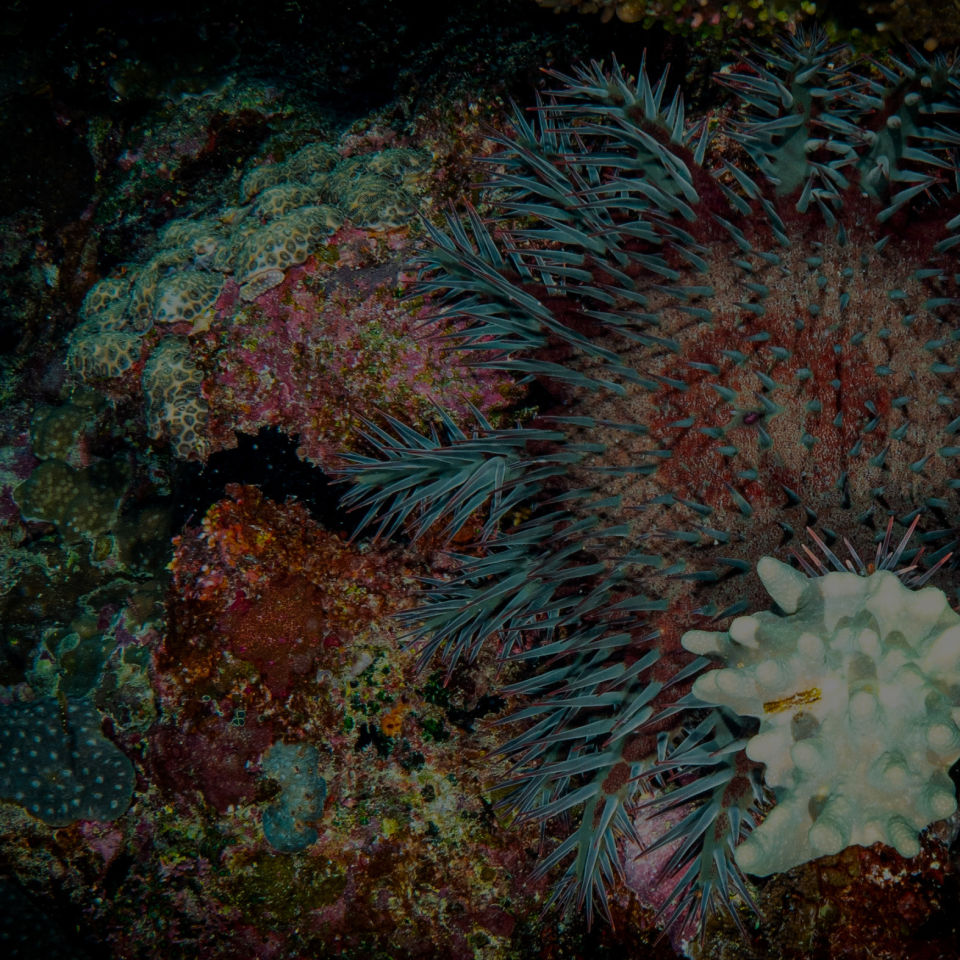
Crown-of-thorns starfish control innovation program
We're spearheading a targeted research program aimed at boosting capacity to predict, detect and respond to crown-of-thorns starfish (COTS) outbreaks at scale across the Great Barrier Reef. Our research directly improves the on-ground approach to coral protection by the COTS Control Program, which sends divers out on the Reef every day to manually cull COTS. Every coral we save from COTS can reproduce and help repopulate damaged areas.
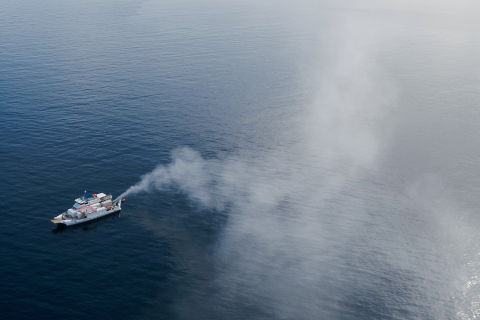
Shading reefs
We're trialing innovative methods that could temporarily lessen the impact of heat and light stress on corals by enhancing natural shade over particular areas of the Reef. Like a marine snow machine, sprayers use the surrounding seawater to generate tiny salt particles that we call aerosols. These aerosols are able to reach low-lying clouds and bolster their ability to reflect sunlight. This approach, which is temporary and reversible, is called marine cloud brightening.
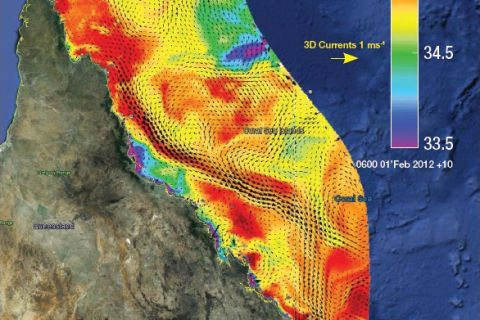
eReefs
The world’s largest reef forecasting and modelling program, it collects and analyses real-time data about the health and condition of the Great Barrier Reef. It combines data from various sources including satellites, oceanographic instruments and on-site monitoring stations. eReefs provides valuable insights into water quality, temperature and other environmental parameters, enabling scientists and managers to make informed decisions and implement effective strategies for Reef protection and conservation.
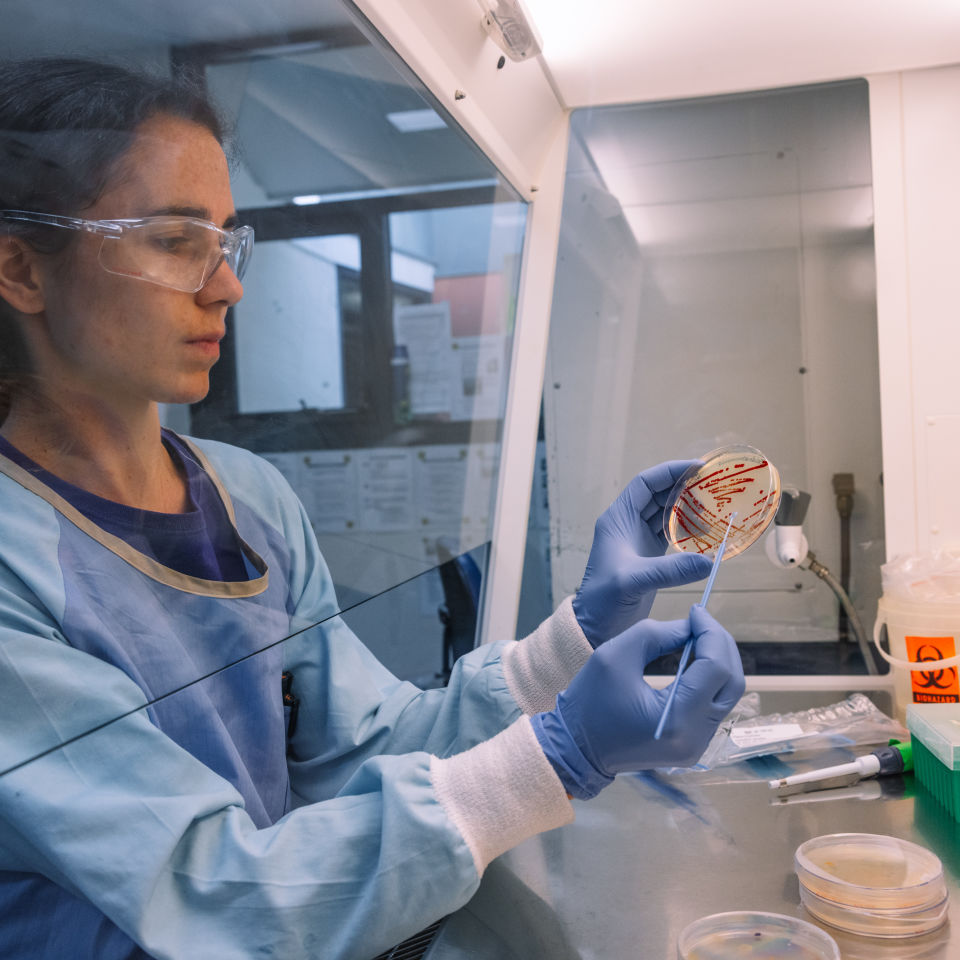
Coral probiotics
Using probiotics on coral reefs can bring several benefits. They can enhance corals' immune systems, making them more resistant to diseases and stressors like bleaching. Probiotics can also promote the growth of beneficial microorganisms, which compete with harmful pathogens. Additionally, they can help improve the overall health and resilience of coral reefs, contributing to their survival and recovery in the face of environmental challenges.
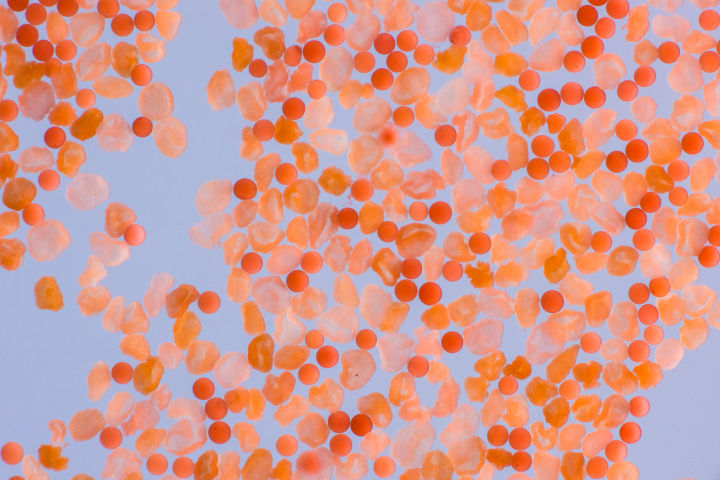
Restoration modelling
We're using data to develop models and predictions of how, when and where we need to intervene and restore the Reef. Understanding the potential benefits, costs, risks and uncertainties associated with restoration intervention is critical to not only reduce costs, but to also maximise the long-term success and health of corals well into the future.
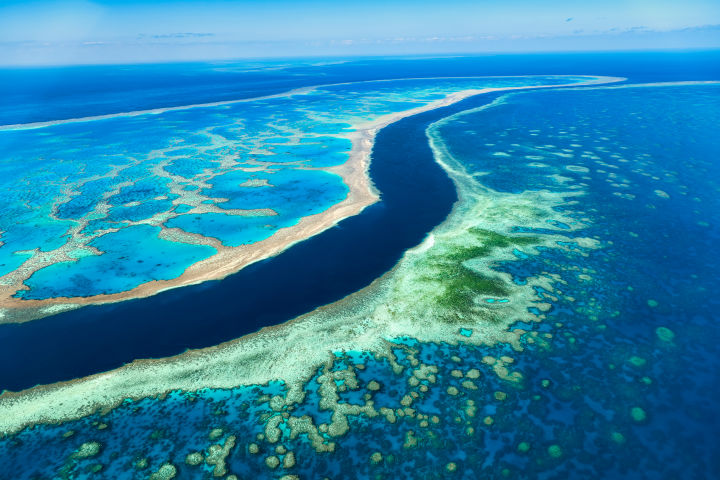
Integrated monitoring and reporting
This program, called RIMREP, provides Reef managers with information to guide decisions, track progress, drive better alignment between existing monitoring programs and help fill monitoring and modelling knowledge gaps. We're delivering clear recommendations about where to invest in critical monitoring needs, as well as the early stage development and prototyping of a Reef-wide decision-support system.
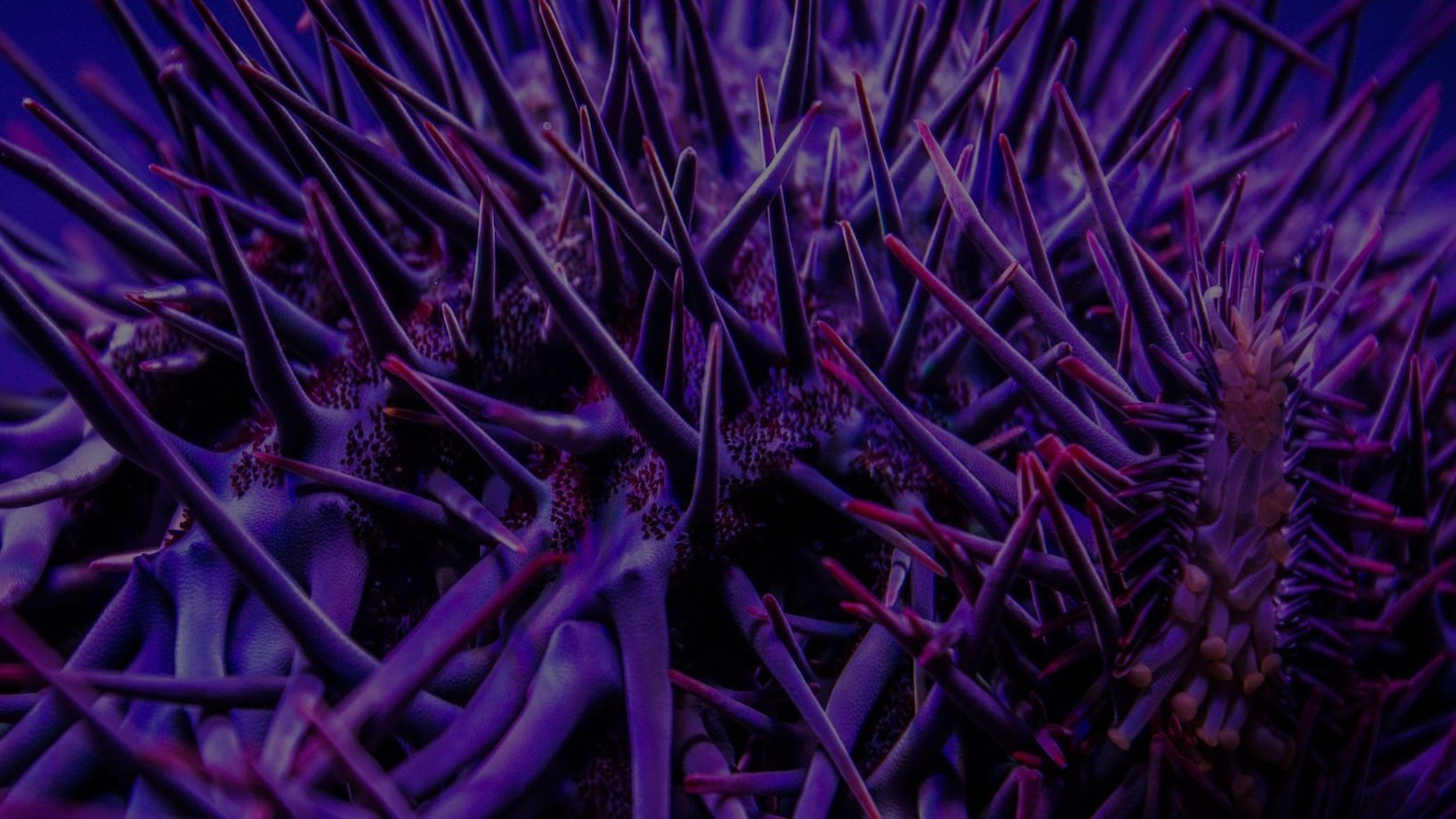
#Project gallery
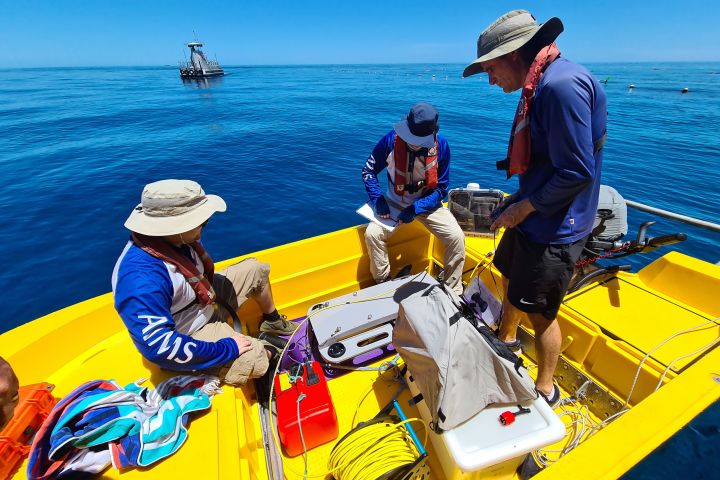
Researchers deploying new COTS surveillance technology. Credit: Mary Bonin
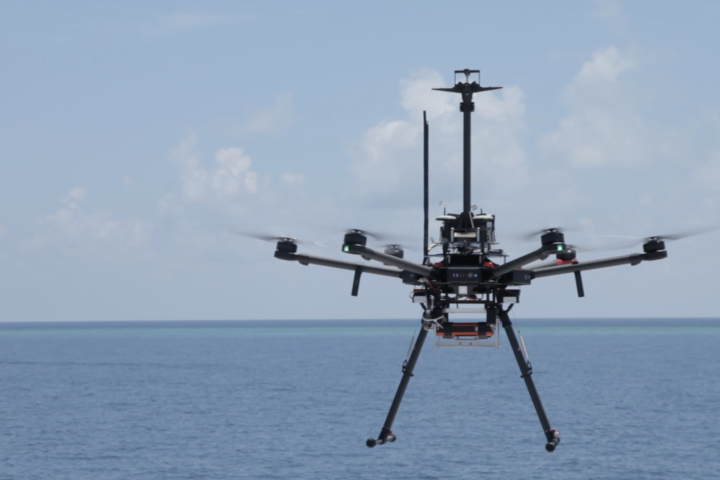
Drone captures data during cloud brightening trials. Credit: SCU
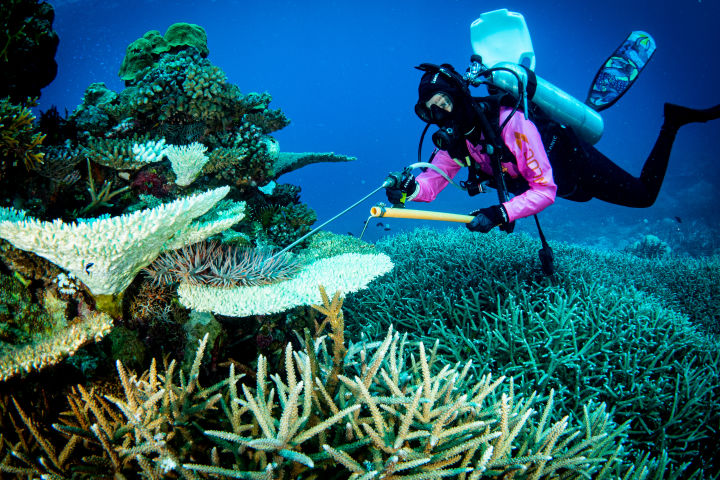
Diver controlling a Crown-of-thorns starfish. Credit: Rick Abom
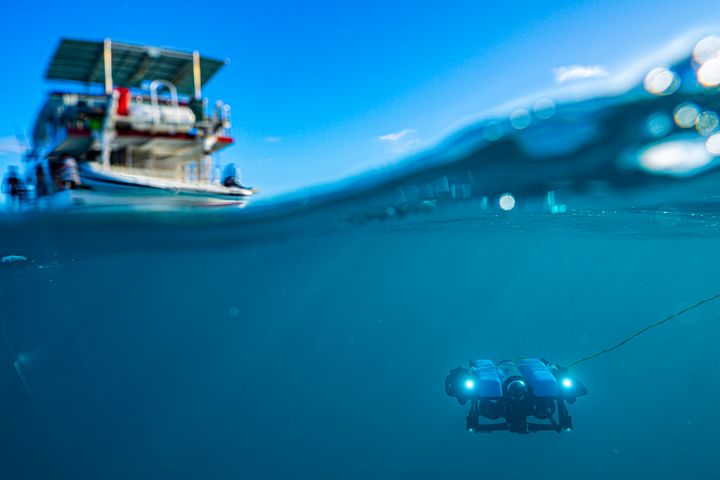
Conducting sea cucumber surveys off Cairns. Credit: Macquarie University
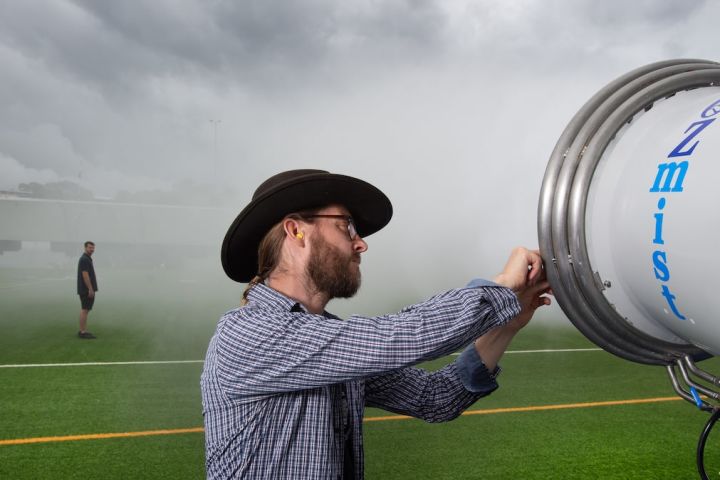
Researchers testing misting cannons on land before on-reef trials. Credit: QUT
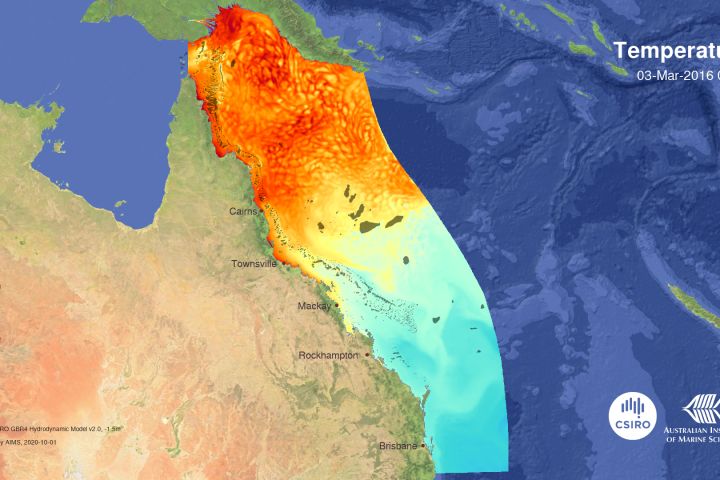
Hydrodynamic model of the Great Barrier Reef, showing temperature. Credit: AIMS and CSIRO
#Featured stories

#Tomorrow needs you, now.
The Great Barrier Reef is in desperate need of support. Donate today to help grow new baby corals, creating a better future for the Reef.

